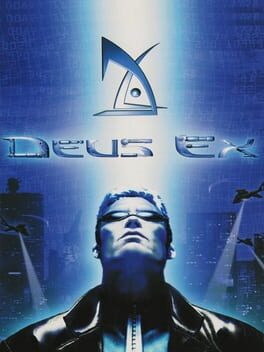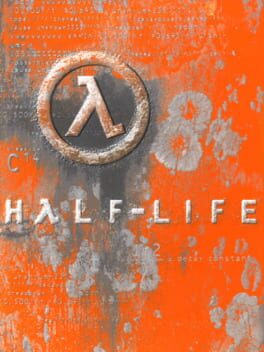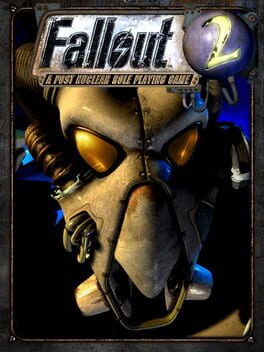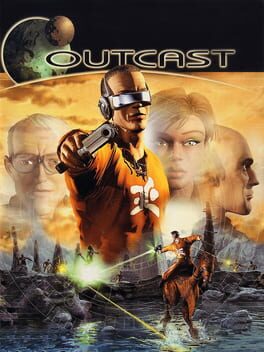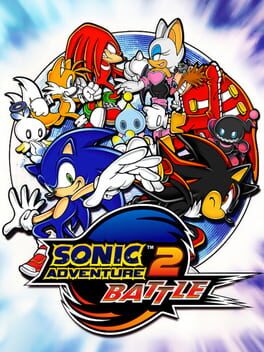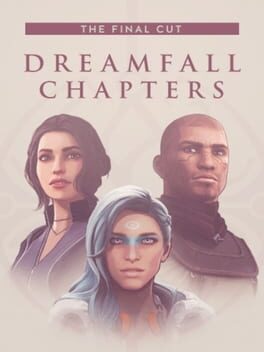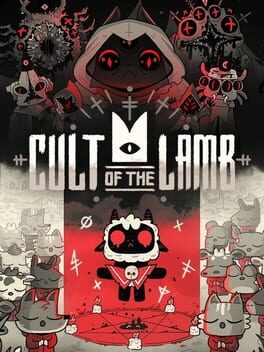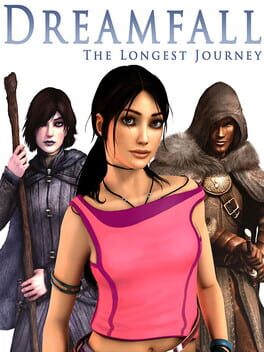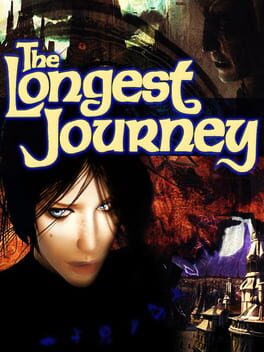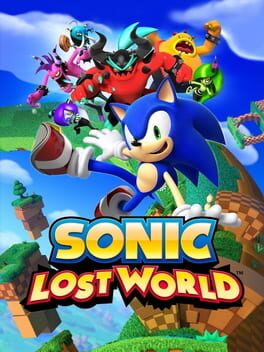FlintFox
Bio
Long-time fan of video games since the 286 PC days. I've set up Backloggd to keep a little more track on what I play, complete and should complete - so don't expect full stock of my collection or memories through the decades.
Long-time fan of video games since the 286 PC days. I've set up Backloggd to keep a little more track on what I play, complete and should complete - so don't expect full stock of my collection or memories through the decades.
Badges

1 Years of Service
Being part of the Backloggd community for 1 year

Well Written
Gained 10+ likes on a single review

Liked
Gained 10+ total review likes

Gone Gold
Received 5+ likes on a review while featured on the front page
Favorite Games
060
Total Games Played
011
Played in 2024
018
Games Backloggd
Recently Played See More
Recently Reviewed See More
Dreamfall: Chapters is a redemption arc for the Longest Journey trilogy after the previous game, Dreamfall, landed flat in every possible way. The game takes a little bit of time to kick in, keeping in the series' tradition of slow starts that patiently put the pieces in motion before the game pulls the rug from under the characters' feet, but once the plot gets going and the further you advance, the more you can detect a clear intent to course-correct the series after Dreamfall's rough landing. Funcom had become distracted by their MMO The Secret World but undoubtedly this world that Ragnar and team had so lovingly crafted - and the absolute state they had left the plot in - kept nagging in their heads and when they finally moved forward with it (with the help of a crowdfunding scheme), they were determined to do it right. Dreamfall: Chapters (from hereon in just 'Chapters') has the aura of a pure passion project, brought into reality because of the love for the material rather than aiming to make a profit.
Fair play to them. I genuinely had a great time with Chapters, far better than I would have ever expected.
From screenshots alone Chapters doesn't look too different from Dreamfall beyond the graphics, but once again the world had moved on in the decade since the previous game. In the mid-2010s adventure games had become trendy once more after Telltale hit a gold mine with The Walking Dead episodic game, seeing the most popular face of the genre shift to a primarily narrative- and character-based experiences where the player's Choices Mattered™. Chapters adopts this concept wholesale - while the player is presented with a fully traversable 3D world (no more being trapped in corridors, as cities feel like cities again), the key focus is on the various moments of character interaction that takes place. Everything from minor dialogue choices to approaching certain characters in certain places can trigger little UI alerts telling you that your choice of action has been remembered for later purposes: the biggest choices are even given an ominous interface of their own which may or may not be timed for dramatic effect. Like Telltale's gaming mini-series, Chapters too was released originally in five different episodes ("Books") across a couple of years and though the segments have been compiled together seamlessly in the version you can now buy on Steam etc, the chapter summaries have been retained at the end of each book, listing the key choices you made and ominously teasing the potential impact it may or may not have. You can even sign up online to link yourself to the wider community and see how many people picked what you did, if that's your thing. I turned the feature off immediately, wanting not to be peer pressured by my fellow players.
Turning the game into a choice-based story game makes perfect sense given where the series was heading, and how even back in TLJ the game spent so much time on worldbuilding and character interactions. There are still some puzzles, minor bits of inventory management and environmental exploration to pace out all the talking, and though they're obviously all more restricted than in the click 'n' point days, never do they feel insultingly simplified or completely pointless like they did in Dreamfall. The game could probably survive just fine without the inventory and the ability to rotate the 3D models of the items you carry in the view mode is very underutilised and only comes up a couple of times (and one is just for an achievement), but I never felt like the brief moments of tinkering around with my pockets was a complete waste of my time like it was in Dreamfall. Similarly, moving around the (much wider) areas now has a purpose as the player characters can interact with so many different things all over the place. The majority of the time all you get is just a little monologue piece, but they're well written, establish little elements about the characters and patient clickers are rewarded with new lines on the same objects. None of this is light years away from Dreamfall, but Chapters shows the results of approaching the new world of adventure gaming with focus and vision.
The story itself is also really good, and it's supported by superb acting and writing which are both absolutely top notch as well (Kian is... a good character now? I actually grew to really like him over the course of the game which is quite frankly mad when you consider his portrayal in Dreamfall). The game is now roughly split 50/50 between Zoë and Kian: the former is piecing her life back together in Stark and soon realising that not everything is what it seems as she begins to realise the true extent of her role in the story, while Kian finds himself part of the rebellion against his former countrymen and unravels the depths of the conspiracy and lies around him. The two are kept almost comically apart and so their stories are largely isolated, but work in tandem to the knowing player. While the actual major beats of the story aren't necessarily the most creative or coherent, the way the characters have been written really sells everything and gets you engaged. I cared about these characters and what they were doing - and thanks to the choice system I did feel a little bit more personally attached to what was going on. Having played a number of choice-based narratives I can easily see where the seams are between the choices and how they affect your overall experience, but certainly the path I took felt so consistent that it could easily have worked as a fully linear story.
The story is also completely impenetrable if you haven't played either The Longest Journey or Dreamfall. The Steam description calls this a "standalone story" and it's about one of the biggest lies told in the entire storefront, despite the meager attempts to give new players an idea of what's going on: there's a "story so far" summary in the main menu, you unlock character encyclopedia entries as you progress to bring you up to date and Zoë's initial chapters find her elaborating about her thoughts and events in her journal (a proper journal this time, which is eventually abandoned as the story escalates), but if you haven't played the first two games you are going be very confused why anything or anyone matters. And though the story itself is a direct continuation from Dreamfall with another quick time skip to justify any changes, you're going to be especially locked out of the continuity because so much of Chapters feels like a big apology for the fans of the first game who Dreamfall sidelined almost completely. Chapters is littered with callbacks, references and outright narrative continuations to the first game, so much so that the heftiest emotional moments of the last few chapters and the epilogue are practically designed for those who've been here since April Ryan first woke up in her cramped boarding house flat all those years ago. Some of it could almost be classed as pandering - and I'm honestly completely fine with that and I assume most people who backed Chapters in the first place were too - but it also serves the point of tying the events of the first game more closely to the wider story that began with Dreamfall. So much of Chapters is about bringing closure - from revisiting old faces and places once more to answering all those questions left behind and literally closing the story, but also in how it makes sure that the start and end actually come to a shared close despite the distance in-between.
It's a great closure - not a perfect one and my reservations about it would necessitate spoiler tags, but the game certainly manages to act as closure. The Longest Journey will always be my special favourite of the entire series, but Chapters is a close second. Despite the differences it carries the magic and spirit of the first game, and not just that but it also retroactively makes Dreamfall look a little better because the majority of those plot threads finally turn out to have some meaning - and it downright rescues Kian and to some extent Zoë from their trappings in the previous game. At the end of it all it manages to find a way to neatly tie up the saga and make this series of games - released across several years, different design trends and shifting playstyles - stick together.
Fair play to them. I genuinely had a great time with Chapters, far better than I would have ever expected.
From screenshots alone Chapters doesn't look too different from Dreamfall beyond the graphics, but once again the world had moved on in the decade since the previous game. In the mid-2010s adventure games had become trendy once more after Telltale hit a gold mine with The Walking Dead episodic game, seeing the most popular face of the genre shift to a primarily narrative- and character-based experiences where the player's Choices Mattered™. Chapters adopts this concept wholesale - while the player is presented with a fully traversable 3D world (no more being trapped in corridors, as cities feel like cities again), the key focus is on the various moments of character interaction that takes place. Everything from minor dialogue choices to approaching certain characters in certain places can trigger little UI alerts telling you that your choice of action has been remembered for later purposes: the biggest choices are even given an ominous interface of their own which may or may not be timed for dramatic effect. Like Telltale's gaming mini-series, Chapters too was released originally in five different episodes ("Books") across a couple of years and though the segments have been compiled together seamlessly in the version you can now buy on Steam etc, the chapter summaries have been retained at the end of each book, listing the key choices you made and ominously teasing the potential impact it may or may not have. You can even sign up online to link yourself to the wider community and see how many people picked what you did, if that's your thing. I turned the feature off immediately, wanting not to be peer pressured by my fellow players.
Turning the game into a choice-based story game makes perfect sense given where the series was heading, and how even back in TLJ the game spent so much time on worldbuilding and character interactions. There are still some puzzles, minor bits of inventory management and environmental exploration to pace out all the talking, and though they're obviously all more restricted than in the click 'n' point days, never do they feel insultingly simplified or completely pointless like they did in Dreamfall. The game could probably survive just fine without the inventory and the ability to rotate the 3D models of the items you carry in the view mode is very underutilised and only comes up a couple of times (and one is just for an achievement), but I never felt like the brief moments of tinkering around with my pockets was a complete waste of my time like it was in Dreamfall. Similarly, moving around the (much wider) areas now has a purpose as the player characters can interact with so many different things all over the place. The majority of the time all you get is just a little monologue piece, but they're well written, establish little elements about the characters and patient clickers are rewarded with new lines on the same objects. None of this is light years away from Dreamfall, but Chapters shows the results of approaching the new world of adventure gaming with focus and vision.
The story itself is also really good, and it's supported by superb acting and writing which are both absolutely top notch as well (Kian is... a good character now? I actually grew to really like him over the course of the game which is quite frankly mad when you consider his portrayal in Dreamfall). The game is now roughly split 50/50 between Zoë and Kian: the former is piecing her life back together in Stark and soon realising that not everything is what it seems as she begins to realise the true extent of her role in the story, while Kian finds himself part of the rebellion against his former countrymen and unravels the depths of the conspiracy and lies around him. The two are kept almost comically apart and so their stories are largely isolated, but work in tandem to the knowing player. While the actual major beats of the story aren't necessarily the most creative or coherent, the way the characters have been written really sells everything and gets you engaged. I cared about these characters and what they were doing - and thanks to the choice system I did feel a little bit more personally attached to what was going on. Having played a number of choice-based narratives I can easily see where the seams are between the choices and how they affect your overall experience, but certainly the path I took felt so consistent that it could easily have worked as a fully linear story.
The story is also completely impenetrable if you haven't played either The Longest Journey or Dreamfall. The Steam description calls this a "standalone story" and it's about one of the biggest lies told in the entire storefront, despite the meager attempts to give new players an idea of what's going on: there's a "story so far" summary in the main menu, you unlock character encyclopedia entries as you progress to bring you up to date and Zoë's initial chapters find her elaborating about her thoughts and events in her journal (a proper journal this time, which is eventually abandoned as the story escalates), but if you haven't played the first two games you are going be very confused why anything or anyone matters. And though the story itself is a direct continuation from Dreamfall with another quick time skip to justify any changes, you're going to be especially locked out of the continuity because so much of Chapters feels like a big apology for the fans of the first game who Dreamfall sidelined almost completely. Chapters is littered with callbacks, references and outright narrative continuations to the first game, so much so that the heftiest emotional moments of the last few chapters and the epilogue are practically designed for those who've been here since April Ryan first woke up in her cramped boarding house flat all those years ago. Some of it could almost be classed as pandering - and I'm honestly completely fine with that and I assume most people who backed Chapters in the first place were too - but it also serves the point of tying the events of the first game more closely to the wider story that began with Dreamfall. So much of Chapters is about bringing closure - from revisiting old faces and places once more to answering all those questions left behind and literally closing the story, but also in how it makes sure that the start and end actually come to a shared close despite the distance in-between.
It's a great closure - not a perfect one and my reservations about it would necessitate spoiler tags, but the game certainly manages to act as closure. The Longest Journey will always be my special favourite of the entire series, but Chapters is a close second. Despite the differences it carries the magic and spirit of the first game, and not just that but it also retroactively makes Dreamfall look a little better because the majority of those plot threads finally turn out to have some meaning - and it downright rescues Kian and to some extent Zoë from their trappings in the previous game. At the end of it all it manages to find a way to neatly tie up the saga and make this series of games - released across several years, different design trends and shifting playstyles - stick together.
A highly enjoyable co-op action romp that at its best really nails the good feel of a high-intensity shooter where a team of haphazard professionals face unrelenting hordes of enemies. Often a guaranteed great time with friends and easy to hop into on an ad hoc basis. That said, it doesn't hook me to return to it in an almost addicted manner in the way many of its spiritual co-op multiplayer predecessors have and that boils down to a number of small issues stabbing bit by bit. The number of technical issues is probably the worst because it simply makes the game awkward to play e.g. the random crashes, irrational loading and slow-down issues that come and go with no real reason, and custom keybindings constantly resetting that as of end of April 2024 still persists as an issue - nothing that breaks the game per se but which annoy enough to make the experience less smooth. There's also problems with balancing all over the place and the GAAS aspects, while fair at the moment, have a sense of uneasiness to them as to how it'll all progress in the near future. Once you get past all that, there is a rock solid co-op experience underneath with a good balance of casual fun and focus-required challenge.
Roguelites are now a field so crowded that you need something special to make it genuinely captivating to repeat dangerous dungeons over and over and over again while accruing incremental changes. Cult of the Lamb’s answer to this is to lace the game with irreverent cult humour, add a light city builder/social manager layer to break the monotony and to make every character into a whimsically cute cartoon animal. And what do you know - it’s the most fun I’ve had with a roguelite since Dungeons of Dredmor and stands head and shoulders above most entries into the genre.
I was going to leave the review there but I do have to elaborate slightly on the actual cult simulation side of the game and simply compliment how much fun it is to manage your little flock of faithful followers, controlling their daily lives according to your whims as they spend their days toiling and worshipping (and with the latest content patch, happily sinning) for you. While the action sequences are great, I found the cult simulator sections in-between so engaging that often I found myself more excited to spend more time with my little guys when logging on. The micromanagement isn’t burdensome and can be relaxed to cater to the player’s needs (and I do recommend toggling on the setting to stop time in the village whenever you go into a dungeon) so it never overstays its welcome - and in fact, I could imagine enjoying an alternative version of this game that fully focuses on this aspect in greater detail over the 50/50 split is now. It’s a lot of great fun and nicely breaks the tension between the more intense dungeon running.
I was going to leave the review there but I do have to elaborate slightly on the actual cult simulation side of the game and simply compliment how much fun it is to manage your little flock of faithful followers, controlling their daily lives according to your whims as they spend their days toiling and worshipping (and with the latest content patch, happily sinning) for you. While the action sequences are great, I found the cult simulator sections in-between so engaging that often I found myself more excited to spend more time with my little guys when logging on. The micromanagement isn’t burdensome and can be relaxed to cater to the player’s needs (and I do recommend toggling on the setting to stop time in the village whenever you go into a dungeon) so it never overstays its welcome - and in fact, I could imagine enjoying an alternative version of this game that fully focuses on this aspect in greater detail over the 50/50 split is now. It’s a lot of great fun and nicely breaks the tension between the more intense dungeon running.
